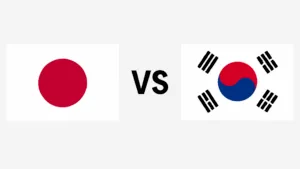
The comparison between the Japanese and Korean languages to determine which one is simpler for learning remains a topic of interest. In this globalised world, everybody is busy moving from one place to another in search of a better life and career growth. Being a linguist is an added benefit for adjusting to a foreign culture and its people. With Asian economies growing stronger, it is an exciting time to pick one of the popular languages, such as Japanese and Korean.
The two languages provide valuable experiences of life together with promising prospects for the future. Given the rich prospects in both, you may feel torn between the merits of choosing Japanese vs Korean. This blog provides essential information to help you choose between Japanese and Korean after a holistic analysis, focusing on how difficult they are for English speakers to learn.
Japanese vs Korean: Understanding Both Languages
The Korean and Japanese Language are quite rewarding for learners and present excellent opportunities to explore the rich heritage and indulge in wonderful new experiences. You are introduced to a vast literature and unique scripts linked to their deep cultural heritage and fascinating histories.
Let’s dive deep into a detailed comparison between learning the two languages and help you arrive at an informed decision.
1. Japanese vs Korean: Writing System
The Japanese alphabet is really a combination of three writing systems working together. These three systems are called Hiragana, Katakana, and Kanji. While native Japanese words are usually written in Hiragana, loanwords of foreign origin are written in Katakana. Both of these are easier to pick up for beginners. Learners find Kanji challenging due to its vast collection of characters. Crucially, the variety of usages makes it very challenging for new learners to grasp and master. Hangul is the script that learners face when learning the Korean language. It is straightforward and can be mastered within a matter of weeks.
2. Japanese vs Korean: Grammar
Japanese grammar is quite logical and consistent in its pattern. The word order always follows a subject–object-verb agreement structure pattern, which is undoubtedly unusual for English speakers; with tactful learning and conscious efforts, one can easily help oneself. Words like “wa”, “ga”, “ni”, although small, are highly impactful and require adequate learning to achieve finesse. The Japanese value politeness in speech above all and expect you to adjust your speech accordingly. Apart from these standard grammar rules, there are hardly any exceptions, so guided learning helps people learn the language easily.
The Korean language shares a lot of grammatical similarity with the Japanese, especially the subject–object-verb agreement and use of particles. However, differences are also prominent, such as complex additional verb endings and the usage of conjugation in sentences. Beginners also find it tricky to handle conjugations in Korean grammar, as it is dominated by tense, mood, and politeness of speech.
3. Japanese vs Korean: Pronunciation
New learners will find that Japanese phonetics are straightforward. You will find a limited set of sounds, with most syllables pronounced as written. Moreover, there are no tones, and the language rhythm is very steady. Beginners find it easy to pick up since there are no tonal variations to consider, and the language rhythm is very steady.
The Korean language, on the contrary, is far more complex in terms of pronunciation. Concepts like tense consonants and their sounds are complex for non-native speakers and take years of practice. Also, the uncommon aspiration sounds make it less beginner-friendly.
4. Japanese vs Korean: Vocabulary
Beginners may find it challenging to gain fluency in Japanese Kanji due to the Chinese influence. The presence of English loanwords does provide relief to English-speaking learners.
Chinese also influences the Korean language to a great extent, but unlike Japanese, the loanwords are much fewer and are accompanied by more native Korean words. Thus, Korean has a slight edge over Japanese in terms of vocabulary.
Japanese or Korean Learning Tips – Easy Way:
- Master the scripts gradually (learn Hiragana, Katakana, and the Kanji)
- Focus on particles and verb forms
- Learn from a reputed language institute
- Clear language proficiency test
- Use technology to learn -like installing language apps, listening to podcasts, watching anime and other popular media
- Join a language learning group and start speaking with fellow group members.
Japanese vs Korean Difficulty Level:
Short-term difficulty: Korean offers early wins because reading is accessible and basic grammar allows quick conversation. Long-term difficulty: Japanese requires sustained effort to master Kanji and reach high literacy. Both languages demand time to internalise honorific systems and natural speech patterns. Your native language and prior experience with other Asian languages strongly influence your perception of difficulty.
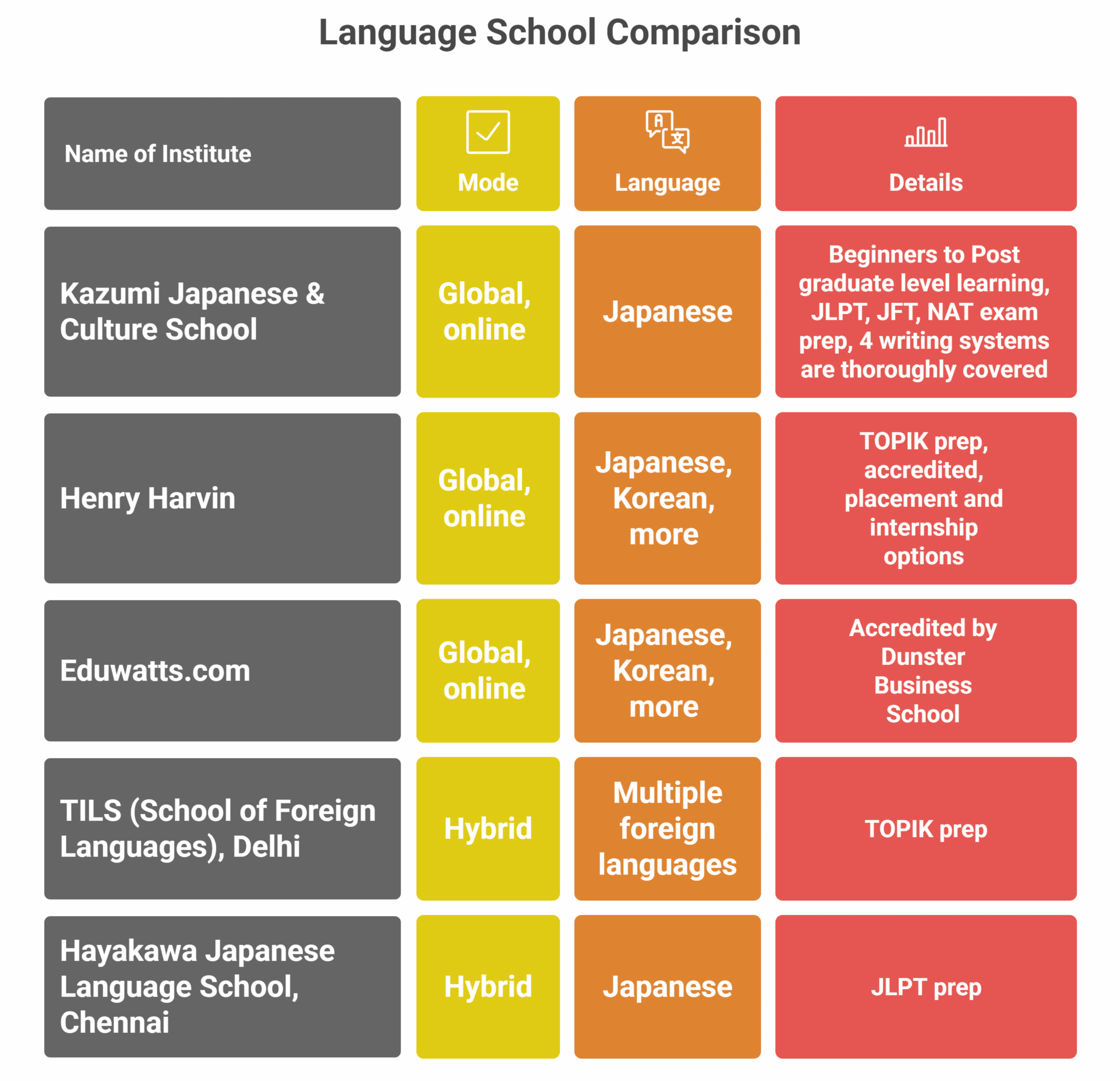
Why Kazumi Japanese & Culture School For Learning Japanese Language?
Kazumi Japanese & Culture School is one of the top online platforms for learning Japanese. It is one of the premier Edtech companies by Henry Harvin, which is known for its standard of teaching. Once you enrol here, you will discover a variety of Japanese courses, including some of the most prominent skill-based job empowering courses.
This language-learning school offers Japanese grammar and sentence structure formation as part of the basic level of learning. You can also learn here all five levels of the Japanese language, starting from N1 to N5, along with improvement in writing. You will explore Kanji, Hiragana, Katakana, and Romaji as well through the courses designed here. On completion of the course, you will be ready to face major Japanese language exams for language, such as JLPT, NAT, and JFT and give your career the right boost.
If you’re someone who loves to explore language deeply, then learning up to a post-graduation or a Master’s in Japanese Language is advisable. The best part is you don’t need to search for a different institute for this purpose, as here you can learn from beginners to post-graduation. You will also enjoy master sessions by industry experts, and all the courses have self-paced learning facilities.
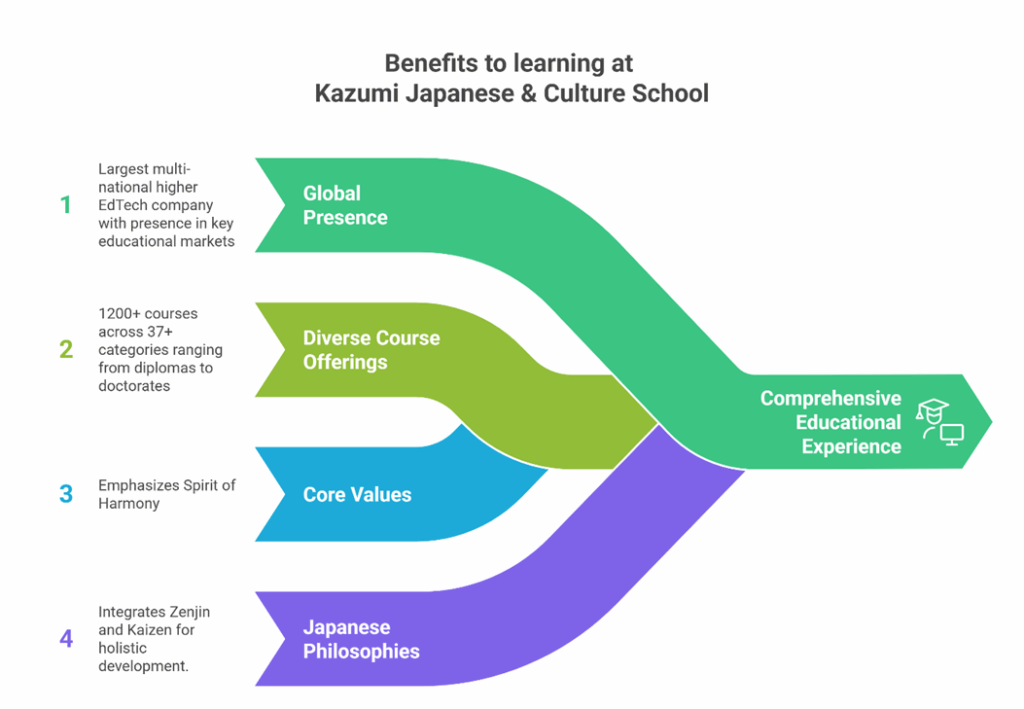
Japanese vs Korean: Job Scope
Learning Japanese gives you an edge in accessing broader global opportunities than learning Korean does. Korean pop culture and the expansion of the tech industry in Korea have ensured a steady rise in global demand for learning Korean.
Japanese, on the contrary, is widely used across a variety of global businesses like the automotive, electronics, finance, and manufacturing sectors. Moreover, Japan is actively seeking skilled and semi-skilled Indian professionals over the next few years to address labour shortage, support the upkeep of Japan’s ageing society, and improve its political relationship with India. This is a golden opportunity for anyone looking to migrate to Japan for better career prospects, and thus learning the language is of utmost priority.
Expected Job Availabilities:
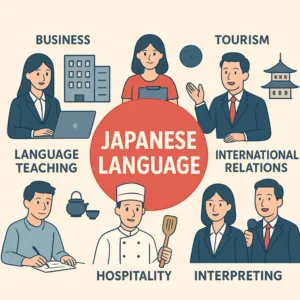
Expected Salary Range:
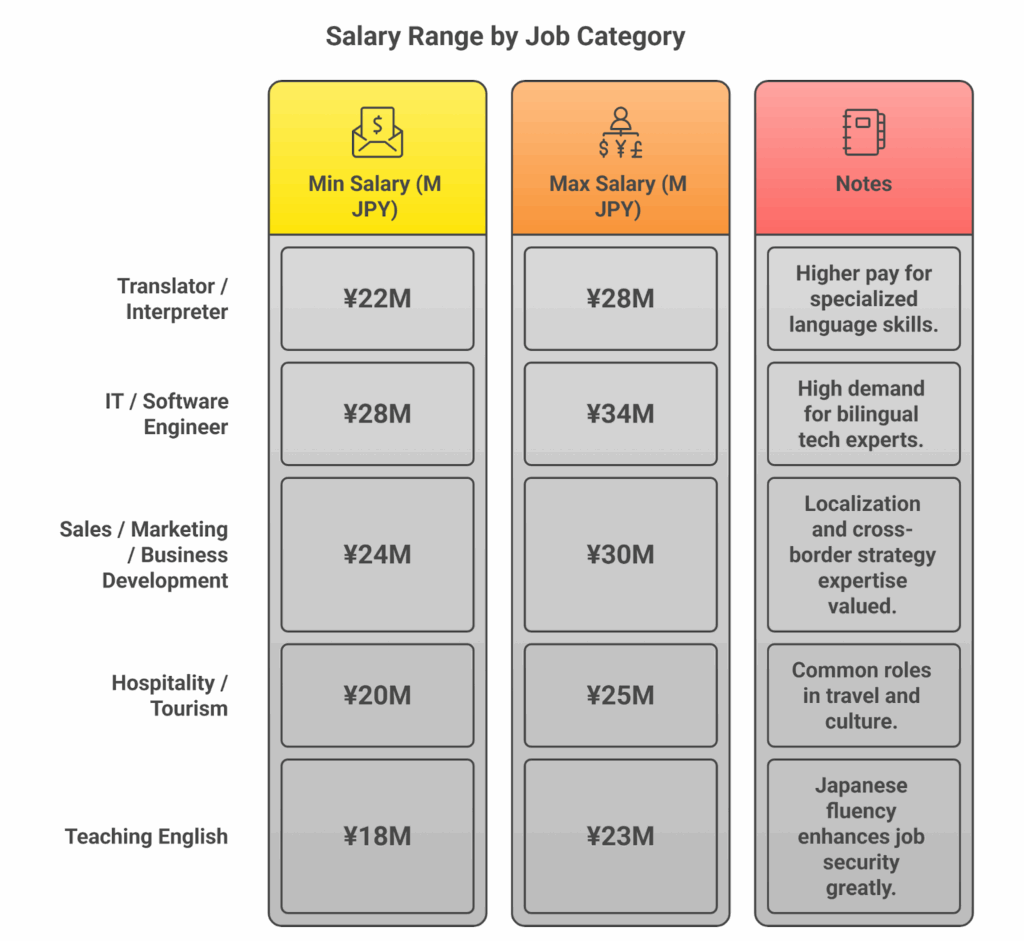
Conclusion:
For most beginners in learning Japanese vs Korean, Korean may initially feel much easier due to its logical language structure. Japanese can be easy for learners with its predictable pronunciation. Both languages offer rich linguistic and diverse cultural experiences. Strategically, you will get more long-term career options and better prospects in Japan. Learning the language can enable you to pursue academic exchanges and international collaborations. Also, the Japanese government’s initiative to bring foreign workforce for jobs and settlement makes learning the language all the more worthwhile and a wise move at the moment.
Recommended Reads:
- Top 10 Japanese Language Proficiency Test (JLPT) Preparation Tips
- Difference Between Hiragana and Katakana – Explained Simply
- How to Learn Japanese Fast (Complete Roadmap)
- Top 10 Benefits of Learning Japanese for Career Growth
- Study in Japan: Scholarships and Universities for Students
FAQs:
Ans: A beginner may find Korean to be easy to pick up. Still, mastery of Japanese can be made with its predictable pronunciation patterns within a matter of weeks.
Ans: Korean and Japanese soft power has global reach through pop culture and anime, in addition to their economic influence. Given the extent of opportunities available, Japanese has an edge in this.
Ans: With more diverse and structured resources like JLPT and Genki, Japanese has the upper hand. However, to learn Korean, you can use growing platforms like Talk to Me in Korean and TOPIK.
Ans: You should spend time mastering the grammar of one before learning the other.
Ans: Speaking can always be practised separately. But reading and writing are essential to attain complete fluency in any language.
